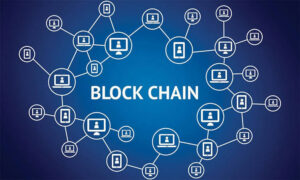Datafication – Advantages and Disadvantages

What is Datafication?
Datafication definition in layman’s term is simply the process of transforming raw and unprocessed data into a more usable form.
Datafication is one of the most powerful concepts in business and education today.
Raw data collected from the public can now be transformed into information and facts that can be used and relied upon in a big business.
Examples of Datafication
Businesses all over the world are making use of this concept to increase their profit and improve the performance and the growth of their businesses.
There are many different examples of datafication, and each of these examples has its own set of advantages and disadvantages.
These advantages and disadvantages are also presented along with examples of datafication.
Advantages of Datafication
- Datafication Helps in Data Management
They make it easier for people to understand and relate to what datafication is and how it works.
One of the advantages of datafication is that it helps manage data.
Managing data can help companies gather information from many sources and organize them in a way that makes it easier for them to make informed decisions.
- Datafication makes Data Processing Faster
With Datafication, you can simply instruct your computers to fetch only the relevant pieces of information from a huge database. Your media content will then be much faster.
- You can access Relevant Data Quickly
Because your computer will fetch only the relevant data, there will be no risk of missing out on data that is important to you.
In addition, you’ll only be storing and accessing the types of media content that you need.
This will also help you because you won’t need to do anything else with the data; it will simply be sitting there, waiting for you to use it.
Disadvantages of Datafication
There are a number of challenges around datafication, and some of these challenges are listed below.
- Datafication could be wasteful
Many companies use a lot of resources when they are processing data through a datafication process.
For instance, big data often requires massive amounts of servers to process and store the data.
This costs a lot of money, especially in a tight economy.
- Datafication could take a Long Time
Big data is very difficult to manage and is also very slow.
One reason why datafication takes so long is that it has to filter out irrelevant data and only bring up the necessary data for analysis.
Another reason why datafication takes long is that it has to make sure that the information is safe enough to share without causing legal problems.
Additionally, there’s the issue of media content that’s sensitive, but still needs to be made available for the various stakeholders within a company or organization.
- Datafication Has a Poor Memory
A datafication process has to be able to read all the relevant media content and extract the important pieces of information that are relevant to a particular job or situation.
However, large data sets are not stored efficiently in large memory.
One reason why this happens is that a lot of the data that you extract from the Internet or other sources is old data.
Therefore, your datafication process will have to check for the new pieces of media content and extract them as quickly as possible.
- Datafication is Expensive
Not all computers are capable of running Datafication processes.
There are still a number of areas where a datafication system will not work, simply because it is not available.
These include old computers that are on old hardware or networks that are too slow.
It also doesn’t make sense to run a datafication system on UNIX boxes, as this platform does not have enough power.
But luckily, you can find many different solutions that allow you to easily and intelligently run datafication programs on almost any kind of computer.
Datafication in Data Science
Datafication has an impact on social science research. Social science research relies heavily on quantitative data, especially on mathematical data.
The improper use of data or information can lead to the misrepresentation of data or missing data.
For this reason, it’s important that your datafication process is able to extract the right pieces of information quickly and accurately.
It also needs to be able to store and sort data in a way that makes sense.
As mentioned, a datafication process is really nothing more than a checkerboard.
In other words, it doesn’t take any imagination to think about the kinds of things that could go wrong.
For example, suppose that you have a huge database that you’re trying to access – but you’re arbitrarily deciding which sites are relevant to you.
You could get into a lot of trouble if you don’t check the accuracy of your data.
This is why it’s so important that you only use a reliable data extraction and storage process such as Dataflow.
Running Datafication on your Server and its Pros
There are many benefits to running datafication processes on a host.
Not only is it more efficient and much more reliable than individual computers, but you will also save a lot of money.
If you’re trying to cut costs and improve your business, you should definitely consider running your data on a server.
Aside from the money-saving, however, there is also the fact that your employees will get a lot more work done because of the greater speed.
Datafication is also important because it allows you to make the most of certain processes and information that you need quickly.
So go ahead and invest in a server if you want to improve your business performance.






